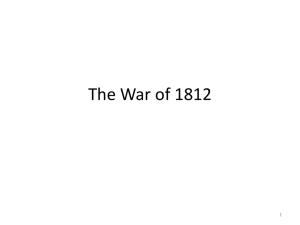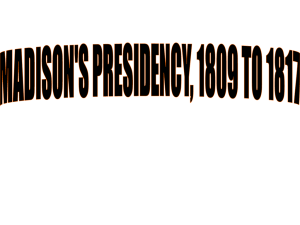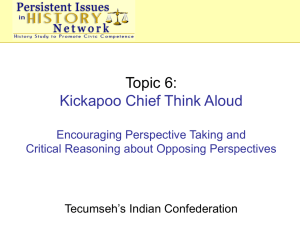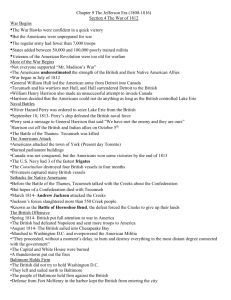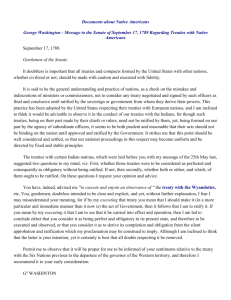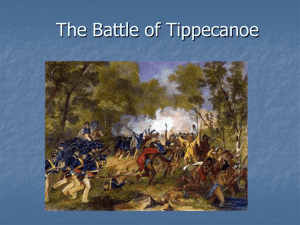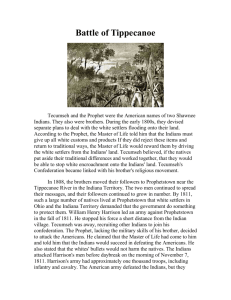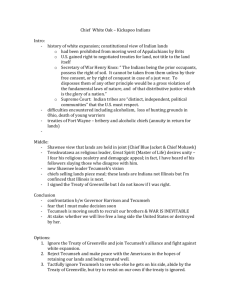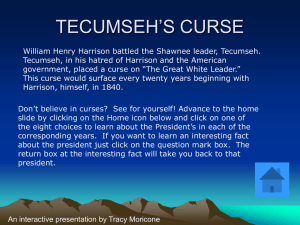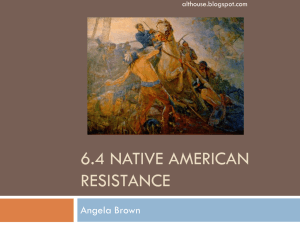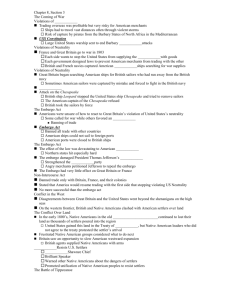LIT 209/Gazzara 1 Unit 6: The Romantic Temper
advertisement
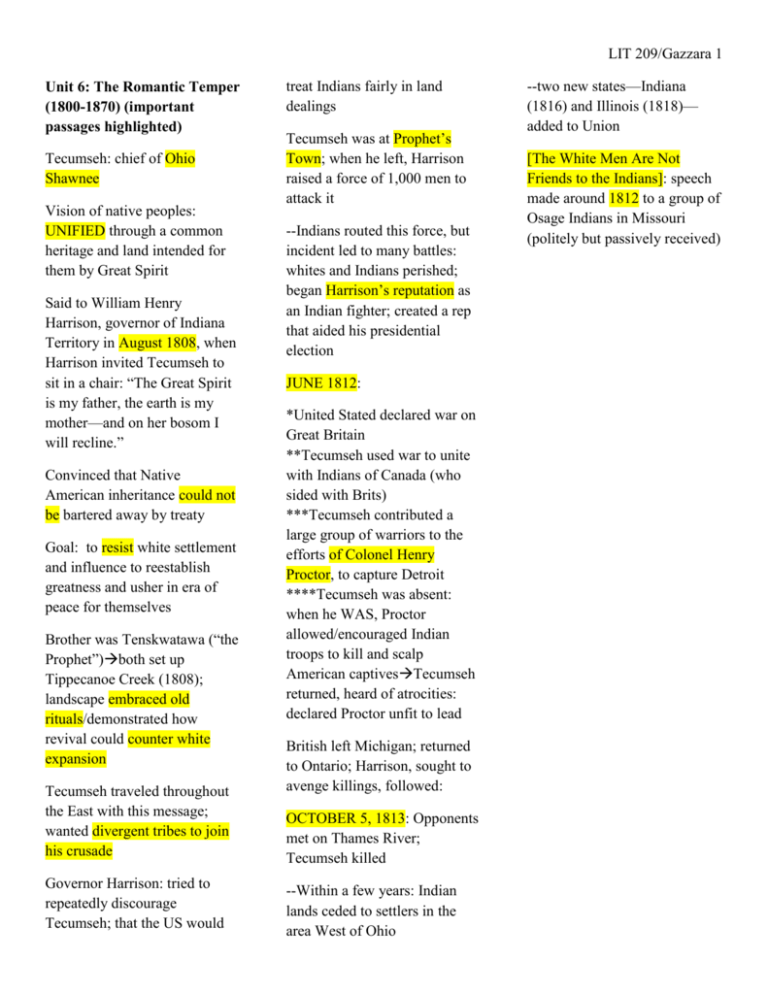
LIT 209/Gazzara 1 Unit 6: The Romantic Temper (1800-1870) (important passages highlighted) Tecumseh: chief of Ohio Shawnee Vision of native peoples: UNIFIED through a common heritage and land intended for them by Great Spirit Said to William Henry Harrison, governor of Indiana Territory in August 1808, when Harrison invited Tecumseh to sit in a chair: “The Great Spirit is my father, the earth is my mother—and on her bosom I will recline.” Convinced that Native American inheritance could not be bartered away by treaty Goal: to resist white settlement and influence to reestablish greatness and usher in era of peace for themselves Brother was Tenskwatawa (“the Prophet”)both set up Tippecanoe Creek (1808); landscape embraced old rituals/demonstrated how revival could counter white expansion Tecumseh traveled throughout the East with this message; wanted divergent tribes to join his crusade Governor Harrison: tried to repeatedly discourage Tecumseh; that the US would treat Indians fairly in land dealings Tecumseh was at Prophet’s Town; when he left, Harrison raised a force of 1,000 men to attack it --Indians routed this force, but incident led to many battles: whites and Indians perished; began Harrison’s reputation as an Indian fighter; created a rep that aided his presidential election JUNE 1812: *United Stated declared war on Great Britain **Tecumseh used war to unite with Indians of Canada (who sided with Brits) ***Tecumseh contributed a large group of warriors to the efforts of Colonel Henry Proctor, to capture Detroit ****Tecumseh was absent: when he WAS, Proctor allowed/encouraged Indian troops to kill and scalp American captivesTecumseh returned, heard of atrocities: declared Proctor unfit to lead British left Michigan; returned to Ontario; Harrison, sought to avenge killings, followed: OCTOBER 5, 1813: Opponents met on Thames River; Tecumseh killed --Within a few years: Indian lands ceded to settlers in the area West of Ohio --two new states—Indiana (1816) and Illinois (1818)— added to Union [The White Men Are Not Friends to the Indians]: speech made around 1812 to a group of Osage Indians in Missouri (politely but passively received)
